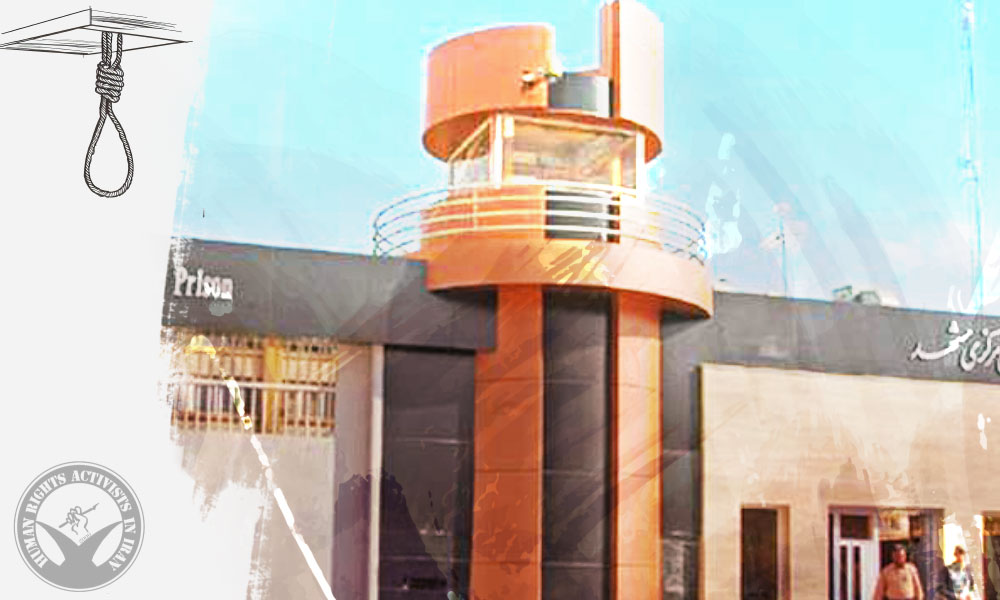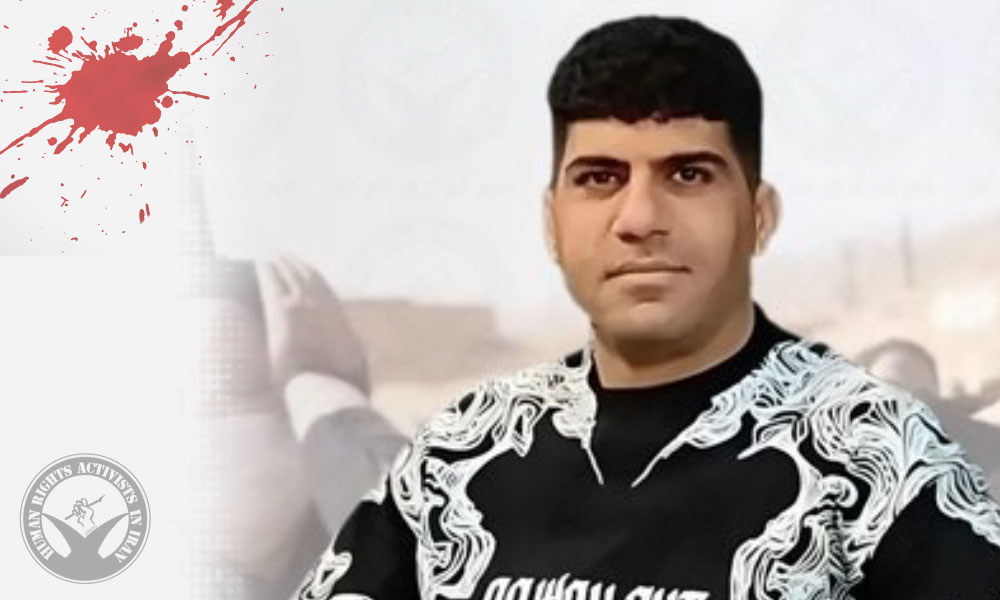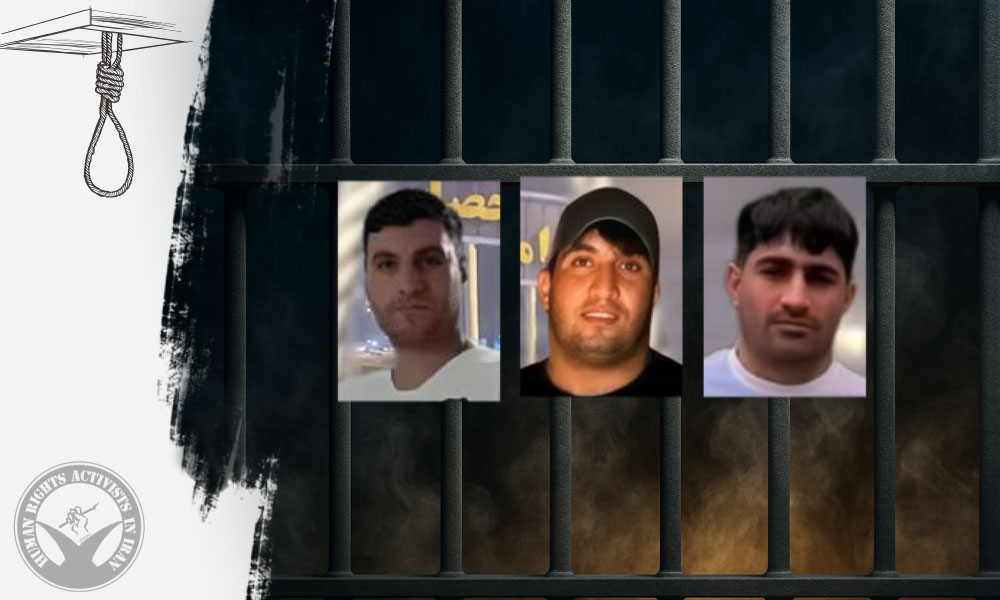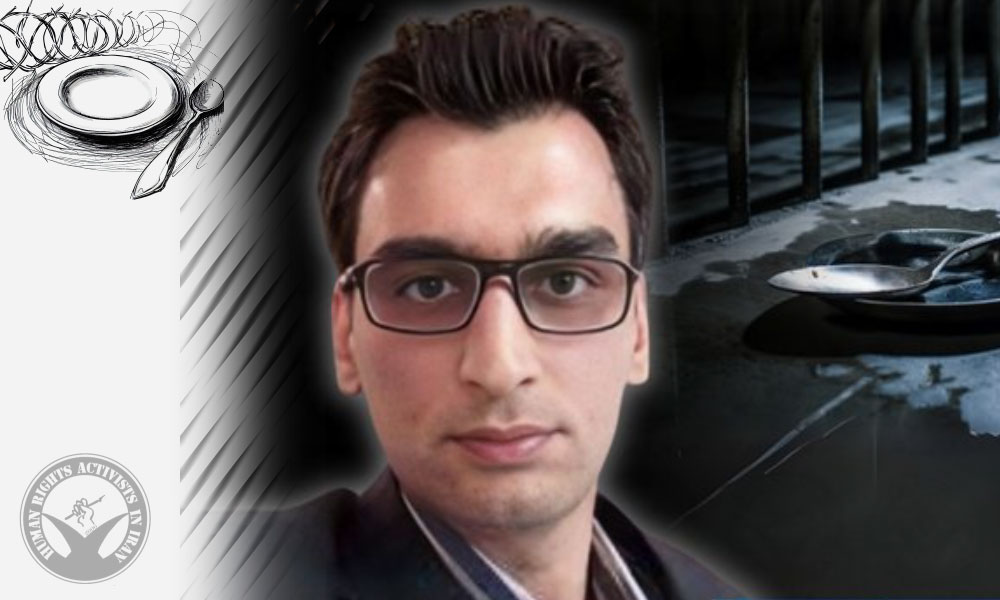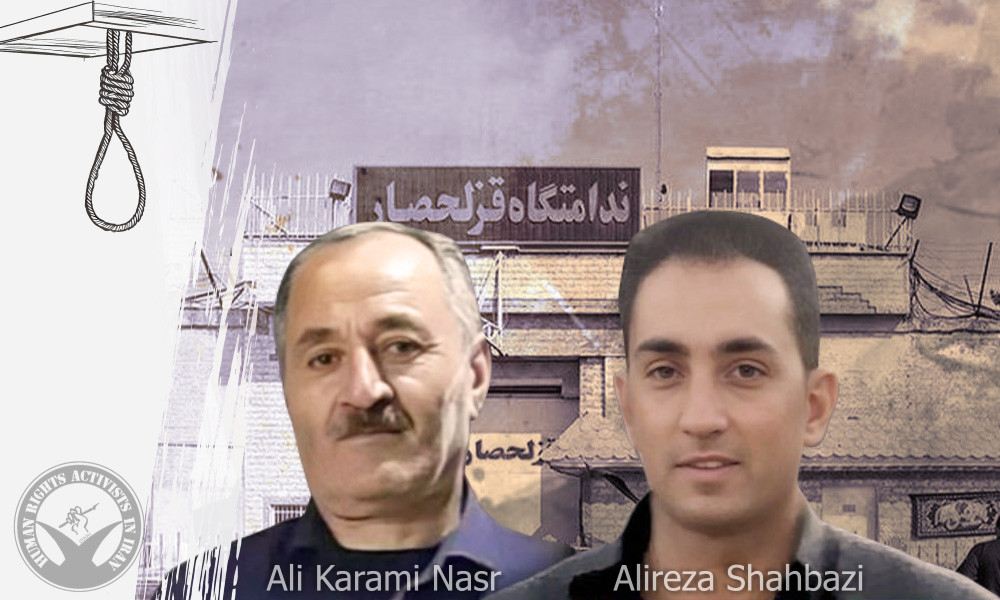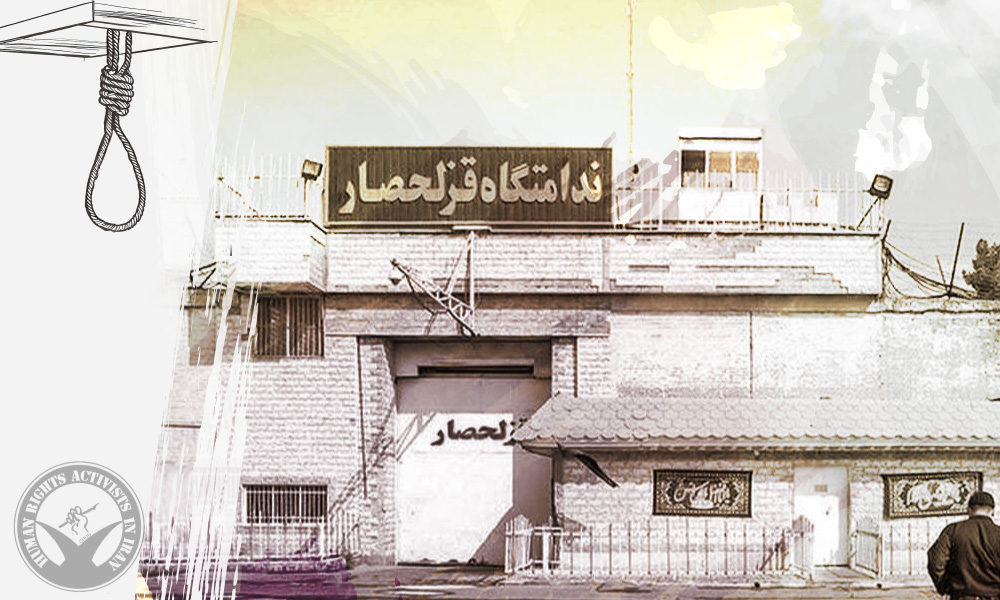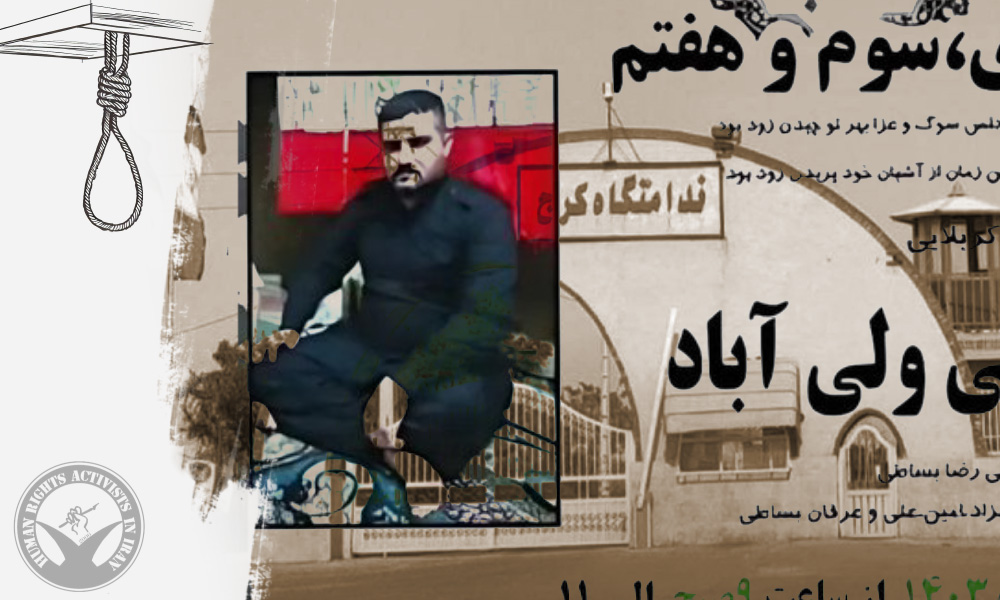HRANA – On Tuesday, November 4, three prisoners were executed in Vakilabad Prison in Mashhad.
According to Khorasan daily, one of the executed prisoners was identified as Majid Sh., 29 years old. The report states that in June 2021, he was arrested on charges of murdering “Reza A.”, the husband of one of his acquaintances. The crime was allegedly committed in collaboration with the victim’s wife, motivated by an extramarital relationship between the two.
Both defendants confessed to the crime after their arrest. The Criminal Court Branch One of Razavi Khorasan Province sentenced Majid to death for murder and his accomplice to a long-term prison sentence. The death sentence was later upheld by the Supreme Court and subsequently carried out.
HRANA has identified another executed prisoner as Rasoul Kahzadi, a native of Kuhdasht. According to information received by HRANA, Mr. Kahzadi was arrested in 2022 after traveling to Mashhad, where he was involved in a fatal altercation that resulted in the death of a young man. He was later sentenced to death by the Criminal Court.
The third executed prisoner had also been sentenced to death for murder.
Further details, including the identity of the third prisoner, are still under investigation by HRANA.
In 2024, according to 812 reports compiled by HRANA, the Iranian regime executed 930 individuals in its prisons, marking the highest number of executions in the past 12 years. Despite the scale of these executions, prison officials and other relevant authorities publicly acknowledged only 6% of them, highlighting the regime’s lack of transparency and accountability.



